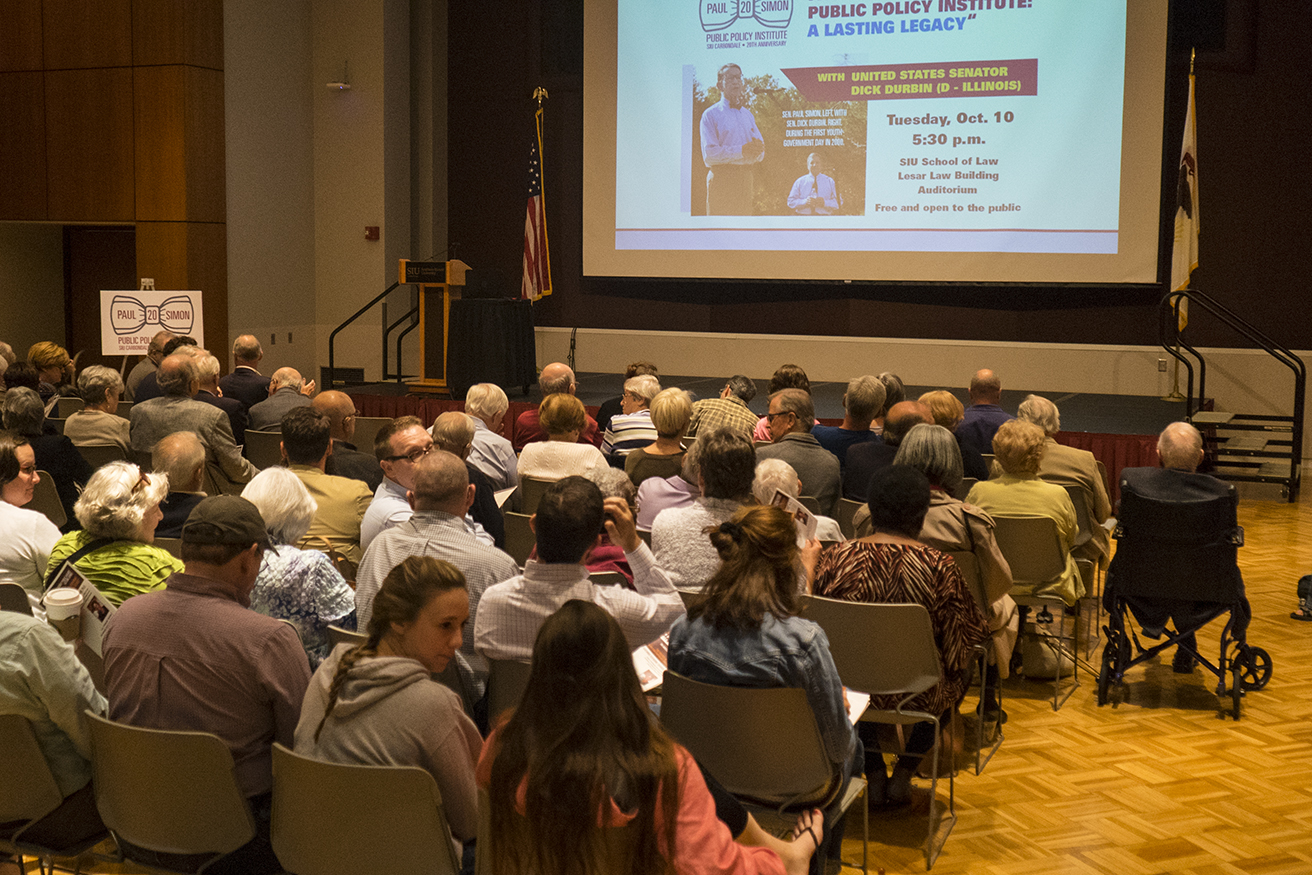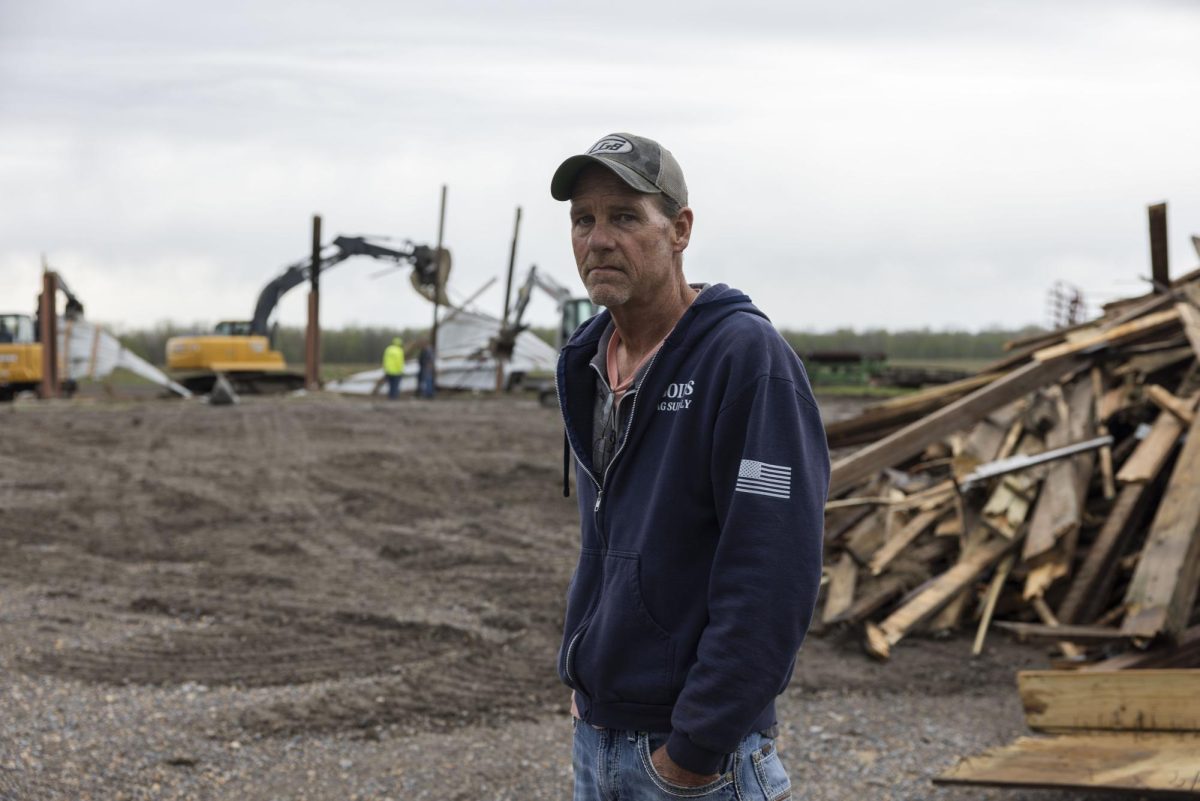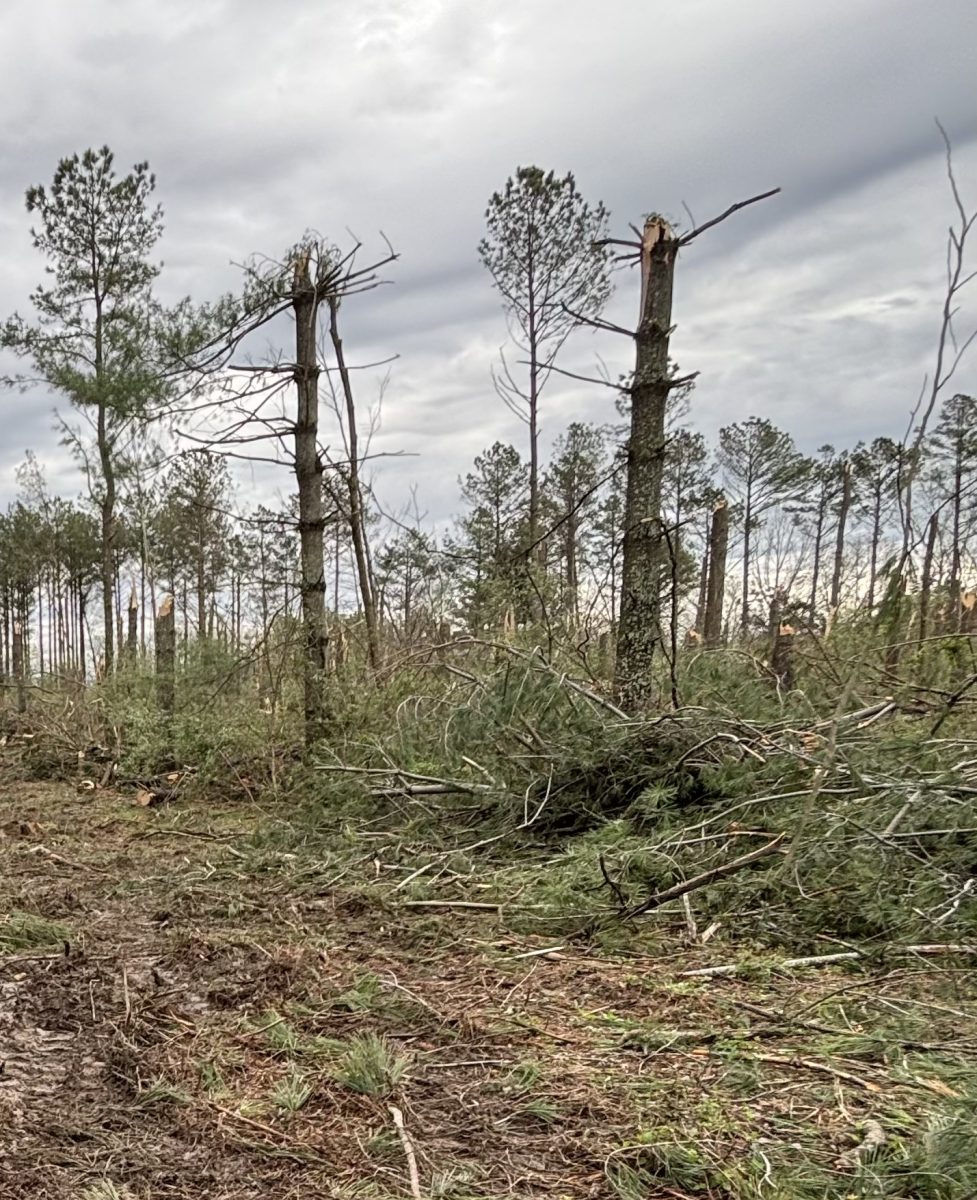Rural communities resent city-dwellers, visiting political science lecturer says
Attendees await Katherine Kramer Wednesday Sept. 6, 2017, in the Student Center to hear her speech titled “The Politics of Resentment in the Contemporary United States.” (Auston Mahan | @MahanAuston_DE)
September 6, 2017
For nine years, Katherine Cramer studied the political opinions of people living in rural communities in Wisconsin.
Cramer, the director of the Morgridge Center for Public Service and a political science professor at the University of Wisconsin-Madison, said she drove across the state seeking the social “hang-outs” in each community to gauge how residents felt about the U.S. political environment.
She said she found that rural dwellers feel they are treated as low-priority by politicians.
Advertisement
“‘People making decisions live in the cities and they don’t know us,’” Cramer said, reading verbatim from a transcript of a conversation she had with a rural Wisconsinite. “‘We’re unfamiliar to them and they don’t even like us.’”
Cramer said she studied 27 communities and 39 groups in her research, which began in May 2007 and continued through the 2016 presidential election.
The lecture, which was held by the Paul Simon Public Policy Institute and titled “The Politics of Resentment in the Contemporary United States,” focused on why people living in less-populated, agricultural communities often feel so left out.
She said many in smaller communities have a perception that their tax dollars are going to big cities and politicians don’t respect them. Cramer said rural communities also think those who live in cities do not understand rural culture.
“It was undeniable,” Cramer said. “I was hearing this common resentment towards the cities.”
But city folk weren’t the only problem — Cramer found the animosity was also aimed toward “elites” and people of color.
While Cramer was conducting her research, President Donald Trump was running his campaign.
Advertisement*
“He appealed to a lot of the different people I had been spending time with,” said Cramer.
Cramer said she could understand how a “decent, kind, caring, funny and compassionate” person could vote for Trump. She said he used the dichotomic political atmosphere to his advantage.
“Using ‘us versus them’ divisions that are available to us in our culture is pretty mobilizing for people,” Cramer said.
Though Cramer’s research showed tax dollars are not actually being monopolized by cities, she also found that people in rural communities have not recovered from the 2008 recession. There are more people living in poverty and suffering from unemployment in rural areas than in urban ones, she said.
Cramer said the economic situation in these communities make residents feel threatened. “The economic situations in our rural communities are pretty difficult,” Cramer said.
“It also sets the stage for divisive messages against our government,” said Cramer. “There’s this sense that government is an urban thing.”
Following the lecture, Cramer opened the floor for questions.
The subject of voter inactivity was brought up, and Cramer said it was concerning to see such political indifference and inaction among younger generations.
She urged audience members to voice their opinions when policy decisions are made that they passionately do not agree with.
Ultimately, Cramer said her research showed that people’s political choices reflect their ethical choices.
“Although I don’t think we should equate people’s political choices with how good of person they are, your political choices should resonate and fit with your own values,” Cramer said.
More results from Cramer’s research can be found in her book “The Politics of Resentment.”
Staff writer Amelia Blakely can be reached at ablakely@dailyegyptian.com or on Twitter @AmeilaBlakely.
To stay up to date with all your southern Illinois news, follow the Daily Egyptian on Facebook and Twitter.
Advertisement









